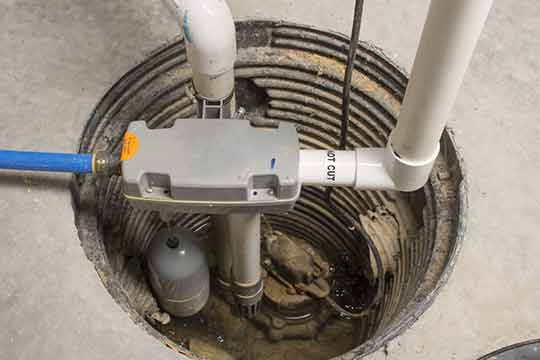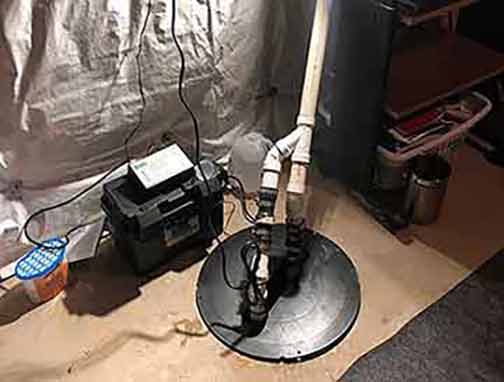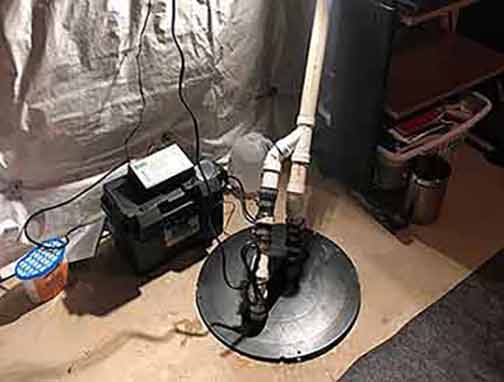Sump pumps are vital devices that help prevent water damage in homes and buildings. They are generally installed in basements or crawl spaces and are designed to remove excess water that collects in a sump pit. This accumulated water can be caused by various factors such as heavy rainfall, melting snow, or high water tables. However, there are instances when sump pumps can unexpectedly activate even during dry weather conditions, leaving homeowners puzzled about the cause. Below we will get deeper into the potential reasons behind an active pump during dry weather and explore effective remedies to address this issue.
Understanding the Components of a Sump Pump
Before we proceed, it is essential to familiarize ourselves with the different components of a sump pump. This knowledge will aid us in comprehending the causes of its activation during dry weather.
A typical sump pump consists of the following major components:
- Sump Pit: This is a basin or reservoir dug below the ground level to collect the water.
- Float Switch: The float switch is responsible for monitoring the water level in the pit. When the water rises, the float switch triggers the pump to activate.
- Pump Motor: The pump motor is the core of the sump pump, responsible for pumping the water out of the pit.
- Discharge Pipe: This pipe carries the water from the pump to a designated drainage area, often located outside the building.

A high water table can cause your sump pump to activate, even when there is no apparent external source of water.
Possible Causes of an Active Sump Pump During Dry Weather
When homeowners notice their sump pump activating despite the absence of rainfall or excessive moisture, several underlying causes can be considered. It is crucial to investigate the possible reasons to implement appropriate remedies to rectify the situation. Let’s explore some potential causes:
Groundwater Seepage
One possible cause of an active sump pump during dry weather is groundwater seepage. Even without significant rainfall, water naturally seeps through the soil and accumulates beneath your home’s foundation. This water can find its way into the sump pit, activating the pump.
Remedy:
To address this issue, consider installing a French drain, also known as a perimeter drain, around your home’s foundation. This will help divert the groundwater away from your property and reduce the amount of water entering the sump pit during dry weather conditions.
High Water Table
In some regions, the water table may rise closer to the ground surface, especially after periods of heavy rain or snowmelt. A high water table can cause your sump pump to activate, even when there is no apparent external source of water.
Remedy:
If you suspect a high water table to be the cause, consult a professional to assess the situation and determine the best course of action. They may recommend installing a more powerful pump or incorporating additional drainage solutions to mitigate the issue.
Plumbing Leaks
Another plausible cause for an active pump during dry weather is an undetected plumbing leak. Leaky pipes or faulty plumbing fixtures can slowly release water, which may eventually make its way into the sump pit.
Remedy:
To identify and address plumbing leaks, conduct a thorough inspection of your plumbing system. Look for signs of dampness, water stains, or dripping in walls, ceilings, and floors. If you suspect a leak, consult a professional plumber to perform the necessary repairs.
Improper Sump Pump Installation
If your sump pump was not installed correctly or has been improperly maintained, it may activate more frequently than necessary, even during dry weather. Issues such as incorrect float switch placement or malfunctioning pump motors can lead to this problem.
Remedy:
In this case, contacting a professional plumber experienced in sump pump replacement services and maintenance is advisable. They will assess your system, rectify any installation errors, and ensure that your sump pump operates correctly.
Summing it Up
An active pump during dry weather can be a cause for concern for many homeowners. By understanding the various components of a sump pump and investigating possible causes, accurate remedies can be implemented to address this issue effectively. Whether it is groundwater seepage, a high water table, plumbing leaks, or improper installation, contacting professionals and taking appropriate measures will help ensure that your pump functions optimally, providing reliable protection against water damage throughout the year.

